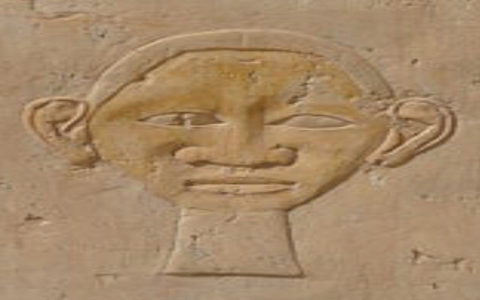I gotta admit, this “ontological argument” thing sounded totally weird when I first stumbled across it while surfing philosophy stuff online. Basically, some old dude named Anselm figured he could prove God exists just by thinking really hard about what the word “God” means? Like, seriously? My head hurt just reading the basic idea. So I decided, why not dig in myself and see if this crazy argument actually holds any water.
My First Reaction: Total Skepticism
My brain just screamed “BS!” immediately. Anselm says, picture the most perfect, most powerful being you can possibly imagine – he calls that thing “God”. Then he says, a being that exists out in the real world is automatically more perfect than one that’s just a fairy tale in your head. So, because “God” is the most perfect being by definition, logic forces God to exist. Like, the idea is so perfect, it must pop into existence.
I sat there blinking at my laptop screen. “Okay,” I thought, “That’s clever wordplay, but proving God? No way. Seems like pure mental gymnastics to me.” It felt like saying “Picture the perfect billion-dollar winning lottery ticket. Now, since actually having that ticket is way better than just imagining it, boom! You must magically have that ticket.” Ridiculous, right?
Digging Deeper: Trying to Follow the Logic
I wasn’t gonna just dismiss it though. I wanted to genuinely try following the steps. So I grabbed a notebook and my reading glasses, sat down at the kitchen table, and tried hard to play along.

- Step 1: Define God as “the greatest possible being” – nothing you can imagine is bigger, smarter, more powerful. That part seemed okay, just defining the concept.
- Step 2: Ask: Does this “greatest being” exist only in our minds, or also out there in reality? Here comes the twist.
- Step 3: Anselm claims a being that actually exists is inherently “greater” or “more perfect” than one that’s just imaginary. Because real things have more oomph than fictional ones.
- Step 4: Therefore, since “God” is defined as the greatest possible being, he cannot possibly lack existence. If he lacked existence, we could just imagine a being just like God plus existence, which would be even greater! But we defined God as the greatest possible, so this bigger-plus-existence version can’t exist. Hence, God must exist.
Phew. Writing that down made it slightly clearer, but still felt like building a house of cards with words.
Where I Landed: Clever Trick, But Not Proof
After chewing on this for a solid couple of hours, here’s my honest take:
- It’s super clever. Like a slick magic trick for the mind. If you accept the starting definitions and assumptions, it kinda seems to lock you in logically. You almost feel pushed into it.
- But… it hinges totally on definitions. That first step – defining God as “the greatest conceivable being” – that’s where the magic happens. Who gets to define what “greatest conceivable” even means? What makes existence part of “greatness”? Seems like Anselm baked the conclusion (“God exists”) right into the definition he started with.
- Reality check failed. The most common sense objection jumped right back at me. Thinking something must exist doesn’t magically make it pop into existence! Like I thought about that billion-dollar ticket – believing really hard it must exist logically doesn’t put it in my wallet. Thinking something has to exist and it actually appearing are two different things.
So, do I think the ontological argument works? Personally? Nope. It feels like a fascinating, intricate word puzzle. Super stimulating to think through – kinda like a brain teaser. It might resonate deeply for someone who already feels God exists and wants a fancy intellectual way to talk about it. But as cold, hard, standalone proof that would convince anyone skeptical? Nah. To me, it proved that you can construct really elaborate arguments based on pure thought, but that doesn’t automatically connect to the messy reality out here. The argument stayed locked in the mind, just like it started.









